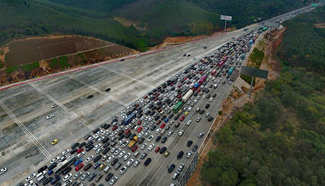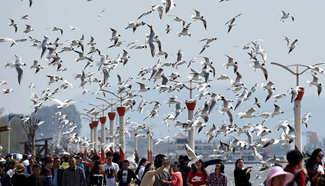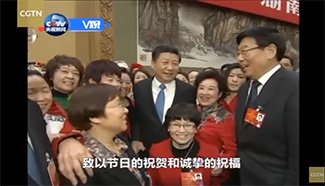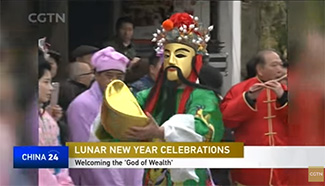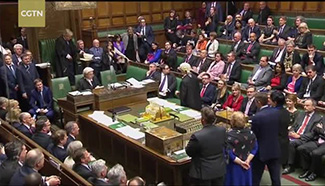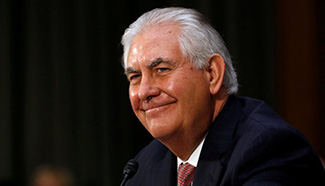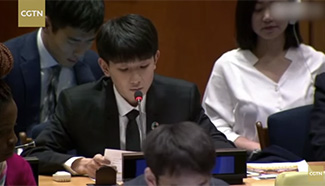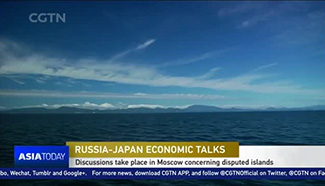by Xinhua writer Liu Chang
BEIJING, Feb. 2 (Xinhua) -- As James Mattis kicks off on Thursday his maiden visit to Asia as U.S. defense chief, what the new U.S. government is offering to the region seems to be a dangerous first-meeting gift.
The hawkish former four-star general is also the first cabinet secretary of the Trump administration ever to make a foreign tour since the new president's inauguration earlier last month. That offers a clue to how strategically significant Asia-Pacific is to the new leader in Washington.
Though it is still too early to judge the Trump White House's overall Asia policy, yet warning shots have been fired that the billionaire-turned-politician is likely to follow a playbook that has been tested ineffective and provocative.
One day before Mattis departed for Seoul, he spoke with his South Korean counterpart Han Min-koo over the phone that the two sides are going to go ahead with the planned deployment of THAAD (Terminal High Altitude Area Defense), a missile defense shield.
Since the very beginning, Beijing has made it utterly clear that the installment of such a missile system poses a severe threat to its own security interests as the THAAD system has a 2,000-km-detection range in forward-based mode. Once the system is completed and starts to function, the United States would be able to peer deep into the Chinese and Russian territory conveniently. The two countries have promised concertedly that they will not sit idle and watch the missile system being installed at their doorstep.
Though Washington and Seoul argue that the THAAD batteries are placed to counter a missile threat from the Democratic People' s Republic of Korea(DPRK), meeting an arms threat with a threat of arms is by no means to unravel the nuclear issue in the Korean Peninsula. On the contrary, such a move would further alienate Pyongyang, and encourage the country to be even more adventurous, building more bombs and testing more missiles, a prelude to destructive arms race in the region.
Although Trump administration is threatening to renegotiate with Tehran over the two countries' historic nuclear deal, yet the agreement reached in July, 2015, still stands as a living proof that forging diplomatic concessions rather than cracking military power bears better hopes to fix a nuclear problem and maintain global nuclear non-proliferation regime.
Shortly after U.S. Senate confirmed on Wednesday Rex Tillerson as the country's next secretary of state, Donald Trump vowed to take fresh look at the country's foreign policy.
Well, if the U.S. leader truly means that, Asia-Pacific is perhaps the best experiment ground to test some new ideas that could foster genuine and inclusive peace and prosperity.
Among other things, Washington needs to do a U-turn on its non-engagement policy on the Korean Peninsula issues. A more constructive approach to bring the DPRK back to the tables is for the United States to be communicative, not coercive.
In the broader Asia-Pacific, as is suggested by some of Trump's closest advisors, the administration is going to pursue "peace through strength" by shifting more Navy ships to the region. The notion seems to be a militarized version of Obama administration's pivot-to-Asia strategy. If his team sticks to that assertive approach, the result could be counterproductive, if not calamitous.
In the final analysis, in a world that has already ceased to be a your-gain-is-my-loss situation, seeking peace and benefits through cooperation, not confrontation is an inescapable path.

